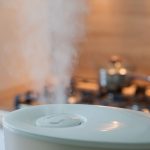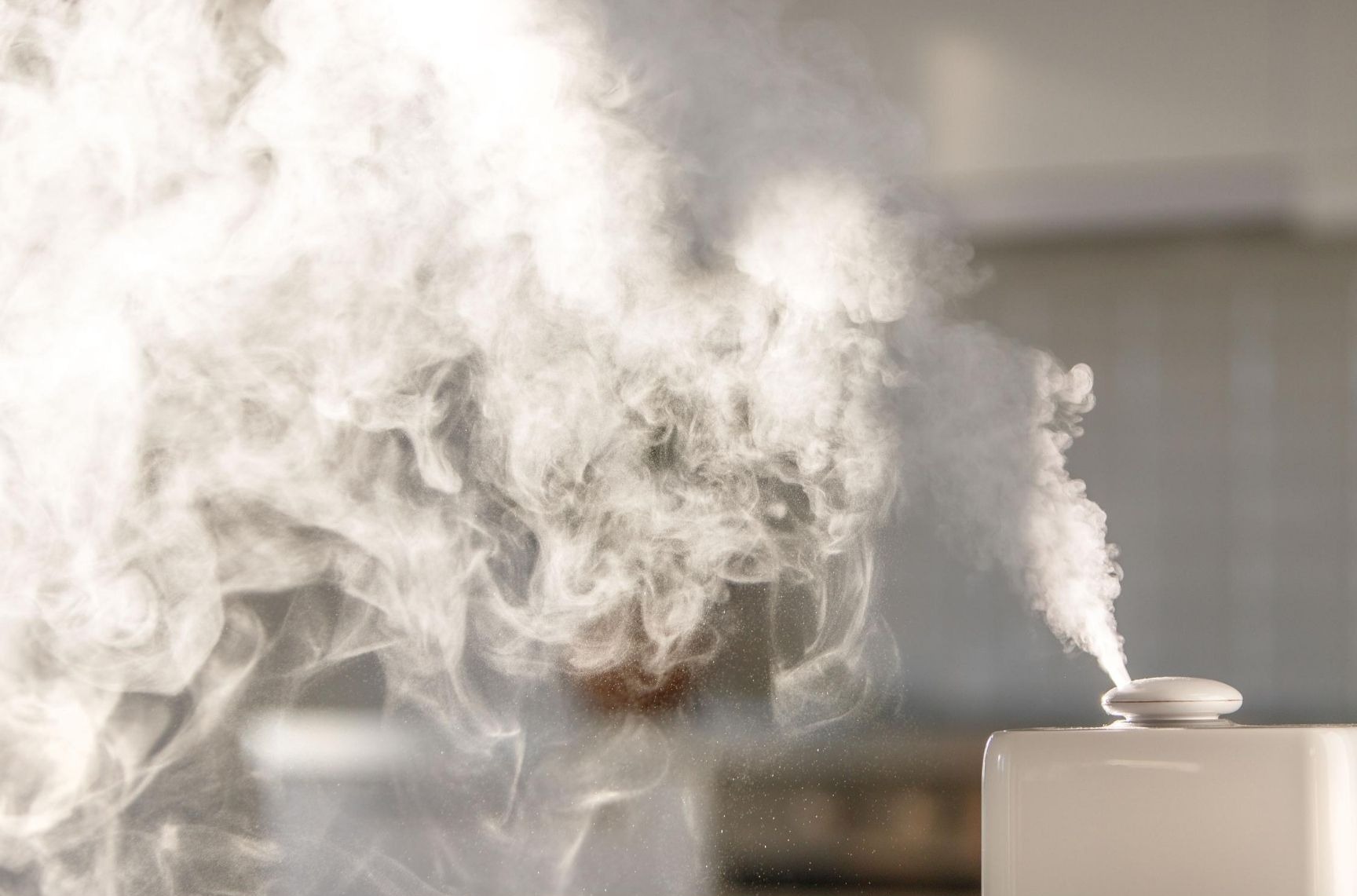Table of Contents
Can a Humidifier Help With Dry Mouth?
Yes, using a cool mist humidifier can help relieve dry mouth symptoms by adding moisture back into the air to stimulate saliva production. The moisture provided by a humidifier helps keep mucous membranes in the mouth and throat hydrated, which soothes irritation.
Dry mouth, also known as xerostomia, is a common condition characterized by a lack of saliva. It can occur for many reasons like medications, health problems, aging, and more. Without adequate saliva, you may experience symptoms like a constant dry, sticky feeling in the mouth, trouble chewing and swallowing, bad breath, and an increased risk of cavities. The moisture from a humidifier can provide relief.
What Causes Dry Mouth?
There are a number of potential underlying causes of dry mouth including:
- Medications – Hundreds of common prescription and over-the-counter medications can reduce saliva production as a side effect. Some examples are antihistamines, decongestants, hypertension medications, antidepressants, and more.
- Health Conditions – Many diseases are associated with dry mouth including diabetes, stroke, Parkinson’s disease, anxiety disorders, HIV/AIDS, autoimmune disorders like Sjogren’s syndrome, and more.
- Aging – Saliva production naturally decreases as we get older, putting older adults at increased risk of dry mouth.
- Radiation Therapy – Cancer treatments that target the head and neck area can damage salivary glands and significantly reduce saliva.
- Smoking and Tobacco Use – Chemicals in tobacco products can irritate salivary glands.
- Dehydration – Not drinking enough fluids can cause dry mouth.
- Mouth Breathing – Sleeping with your mouth open, which often occurs with nasal congestion or sleep apnea, can dry out the mouth.
- Nerve Damage – Damage to the nerves that stimulate saliva production can inhibit saliva, like after a stroke.
- Chemotherapy – Cancer treatment drugs are notorious for causing dry mouth.
Symptoms of Dry Mouth
When saliva production is impaired, it can lead to irritation and discomfort. Common symptoms of dry mouth include:
- Constant dry, sticky feeling in the mouth and throat
- Difficulty chewing, swallowing, tasting
- Difficulty speaking for long periods
- Burning or tingling sensation in the mouth
- Dry, sore, cracked lips
- Dry, raw tongue
- Mouth sores or oral infections like thrush
- Halitosis (bad breath)
- Increased dental cavities and tooth decay
- Difficulty wearing dentures
- Dry, stuffy nose if nasal passages are affected
- Coughing or sore throat
| Dry Mouth Symptoms | Explanation |
|---|---|
| Dry, sticky feeling | Lack of saliva leads to a persistent dry feeling in the mouth and throat. |
| Difficulty chewing and swallowing | Saliva helps soften and lubricate food to aid in chewing and swallowing. Without enough saliva these actions become more difficult. |
| Difficulty speaking | Saliva is needed to moisten the mouth to speak clearly and smoothly. |
| Burning, tingling, soreness | Dry tissues in the mouth are more prone to irritation and inflammation. |
| Increased dental problems | Saliva washes away food debris and has antimicrobial properties. Without it cavities and infections are more likely. |
| Bad breath | Saliva helps remove odor-causing bacteria. |
 How Can a Humidifier Help with Dry Mouth?
How Can a Humidifier Help with Dry Mouth?
While dry mouth needs to be addressed at its root cause, using a humidifier is one way to get temporary relief from annoying symptoms. It can help by:
- Putting moisture back into the air to keep membranes in the mouth and throat lubricated. Humidifiers increase the relative humidity in the room.
- Stimulating some saliva production by keeping oral tissues moist.
- Soothes irritated tissues, helping to minimize burning or tingling sensations.
- Makes it easier and more comfortable to chew, swallow, and speak.
- Alleviates cough and sore throat that can occur from dry throat and nasal passages.
- Reduces risk of further complications like tooth decay and infections.
The American Dental Association recommends the use of a humidifier as one approach to relieve dry mouth and keep the mouth healthier. The cooling mist provides a soothing effect and adds needed moisture to dry environments.
Tips for Using a Humidifier for Dry Mouth Relief
Humidifiers are available in different types, like warm mist and cool mist varieties. When selecting one to help manage dry mouth, follow these tips:
- Choose a cool mist humidifier – This type of humidifier is recommended because it eliminates the risk of burns from hot steam. Cool mist options are safer for extended use in bedrooms.
- Use purified or distilled water – Tap water can contain minerals and bacteria that get dispersed into the air. Use distilled or purified water to prevent white dust or microbial buildup.
- Clean regularly – To prevent mold growth, be sure to clean and disinfect the humidifier according to manufacturer instructions. Change water daily.
- Use at night – Place the humidifier by the bed to get maximum relief overnight while sleeping. This is often when mouth breathing occurs.
- Portable humidifiers – Smaller humidifiers that can be moved from room to room can be convenient for use throughout the day.
- Discuss with your dentist – Ask your dentist about using a humidifier along with proper oral hygiene and other dry mouth treatments they recommend.
When to See a Doctor for Dry Mouth
While using a humidifier can temporarily alleviate dry mouth symptoms, it’s important to see a doctor if you have severe, persistent dry mouth to check for any underlying problems.
See your physician promptly if you experience:
- Constant dry mouth lasting longer than 2 weeks
- Difficulty eating, speaking, or sleeping due to dry mouth
- Sores, white patches, or other oral changes
- Increased dental cavities or infections
- Dry mouth that does not improve with increased hydration
- Other worrisome symptoms along with dry mouth
They can perform an exam, determine if any health conditions are contributing to the problem, and discuss additional treatment options. These may include:
- Prescription medications like pilocarpine or cevimeline to stimulate saliva production
- Oral rinses to coat the tissues
- Oral gels or moisturizing lozenges
- Treatment of underlying health issues
- Referral to a dentist or other specialists
Severe dry mouth may require complex treatment plans. Work with your medical team to find the right solutions to manage symptoms.
Conclusion
Dry mouth is a common nuisance affecting millions of people. The discomfort and complications of decreased saliva can negatively impact quality of life. While the root causes need to be addressed, using a cool mist humidifier can be an easy and effective way to find temporary relief.
Humidifiers work by adding moisture back into dry indoor air to keep mucous membranes in the mouth and throat hydrated. The cooling mist also soothes irritated tissues. Place a humidifier by your bed at night when symptoms tend to be worse. Drink plenty of fluids, practice good oral hygiene, and see a doctor for severe cases. With a comprehensive treatment plan including humidification, dry mouth can be successfully managed. 1.







